The Cognitive Handoff
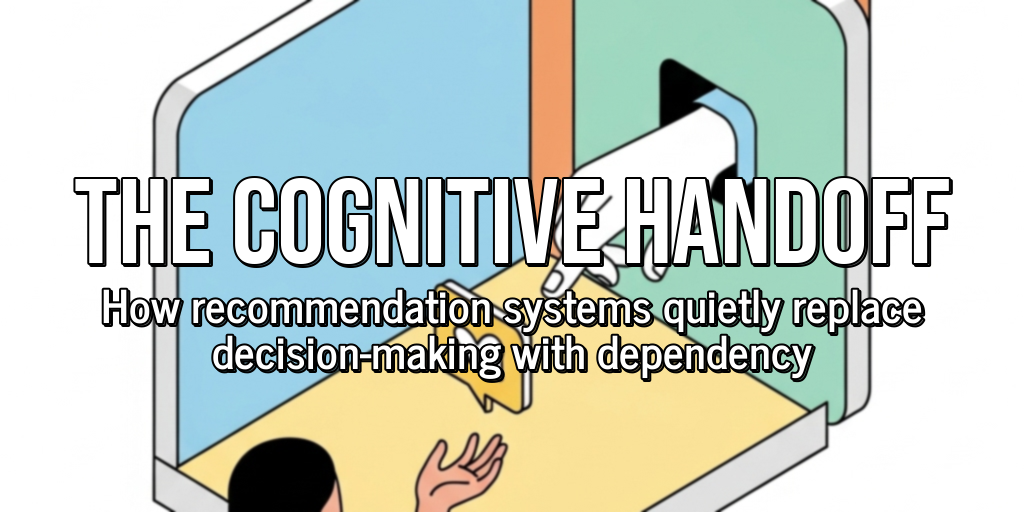
Sometime around 2018 the way people made decisions quietly shifted. It wasn't dramatic; it crept into everyday life, and most of us barely noticed.
What's striking is how invisible the hand is. The algorithm doesn't announce it's rearranging what you see; it simply learns from what you click, what you scroll past and what you ignore. Over time that quiet tuning creates the sense that the product understands you, when in fact it's simply getting better at predicting which choices you'll accept without much thought.
The change was subtle. There was no new interface and no big announcement. What shifted was quiet: recommendation algorithms crossed a line where they stopped just suggesting what you might like and started steering what you would pick. That sounds small, but it quietly moved the source of many everyday decisions.
Think about the last three articles you opened, the restaurant you picked last week, or the show you watched yesterday. If you trace how those choices happened, you’ll probably find it wasn’t a pure, solo decision. An algorithm ordered the options, spotlighted certain details and timed suggestions to arrive when you were most likely to accept them. More often than not, you acted as approver rather than chooser.
This is a fundamental shift in how choices are made. Before, you had to find options, weigh trade-offs and pick according to your priorities. Recommendation systems compress that into a simple yes-or-no moment: accept or scroll. The hard cognitive work happens elsewhere now, carried out by algorithms built to drive engagement rather than reflect what you say you want.
Researchers call this "cognitive offloading" (the transfer of mental work from people to systems). Studies have found that people who rely heavily on algorithmic recommendations tend to show weaker critical thinking: they're less able to generate alternatives, weigh complex trade-offs, or notice when an interface has nudged their preferences rather than their own reflection. You can see the effect in small, everyday choices. That doesn't mean everyone's helpless, but it does shift where the thinking actually happens.
Look closely and the reason is straightforward: these platforms make money when you stick around, not when you make wiser choices. An algorithm that slows you down and prompts real reflection could actually reduce the time you spend browsing. One that smooths decision-making into a quick accept-and-move-on pattern, by contrast, keeps you engaged and boosts revenue. In short, the incentives built into the system push design toward what helps the business, which won’t always match what helps you.
There's a strange mismatch in how people relate to these systems. About 62% report privacy concerns, and yet many of the same people increasingly lean on algorithmic suggestions for everyday decisions. They learn to distrust tracking but don't always notice the quieter effect: recommendation systems slowly reshape what they consider worth choosing. That combination, skepticism about data collection plus growing cognitive dependence, creates a peculiar, easy-to-miss form of technological reliance.
This dependency deepens because the system alters the choice landscape. Rather than merely predicting your tastes, it decides which options you see, how they're ordered and which cues make one choice seem better. Bit by bit, your preferences start to reflect what the algorithm rewards, like items that are easy to present, keep you scrolling or generate revenue, rather than the result of independent comparison. The change is gradual and subtle, so you rarely notice your tastes bending toward the platform's goals.
Look back at the choices you made recently and how they happened. When did you last find something truly unexpected by digging around on your own, rather than having it suggested to you? When did you actually change your mind after weighing options the algorithm never surfaced, or have to go looking instead of picking from a neat, curated list? Hard to remember — and that forgetfulness is exactly the point.
If those moments feel rare these days, that's the cognitive handoff at work: a slow, quiet transfer of decision-making from you to the system.
These effects go beyond individual choices. When people hand decisions to engagement-driven algorithms, whole populations begin to show the same consumption habits, the same attention rhythms and the same blind spots. The diversity that used to come from independent choice is steadily squeezed into patterns that favor algorithmic efficiency rather than real human needs.
You don't need to imagine a conspiracy or bad faith. This is what naturally happens when we shift chunks of our thinking onto systems built to pursue other goals. Over time the algorithm looks smarter at predicting behavior, not because it suddenly understands us better, but because we start acting in ways that make its job easier; we take the path of least resistance instead of testing alternatives. It's the small adjustments, repeated enough, that change the shape of our choices.
A simple test tells you which side you’re on: are you using the system, or is the system using you? Ask whether you can easily find reasonable options the algorithm never surfaced, whether you still choose things that demand real deliberation instead of a quick tap, and whether your preferences have stayed steady rather than sliding toward what the platform rewards. If the answer leans toward the former, you’ve kept some cognitive independence.
If not, you're in the middle of the handoff. Your decision-making has been quietly redesigned to fit someone else’s success metrics. The question isn't whether that's good or bad; it's whether you notice it's happening and whether the trade-offs actually match what you want from your choices.
These systems aren't going away. They'll only get smarter. Awareness, though, changes the dynamic. Once you notice the handoff you can pick which mental chores to hand over and which to keep for yourself. The point isn't to reject every recommendation; it's to use them when they're useful and to avoid becoming someone else's optimization target.
That distinction matters: it decides whether technology expands your control or, almost without your noticing, quietly replaces your decision-making.
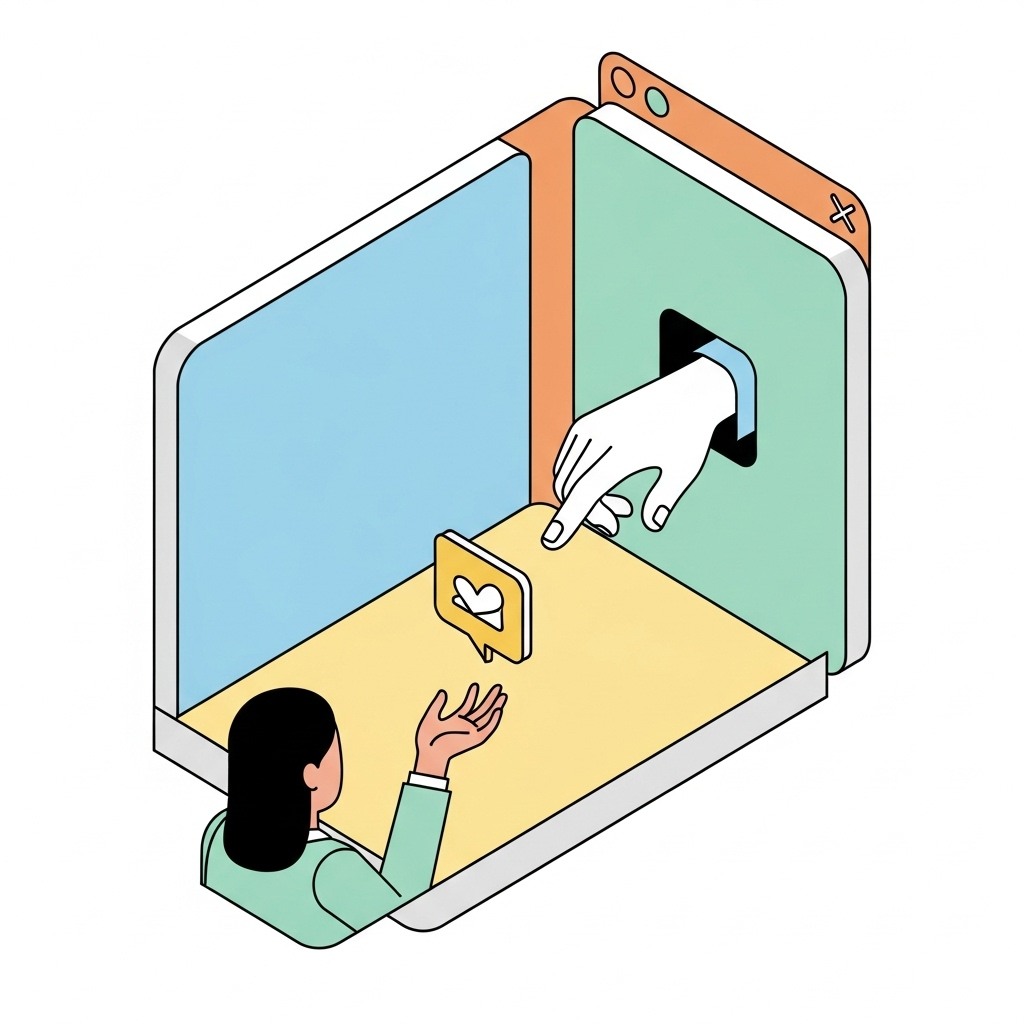
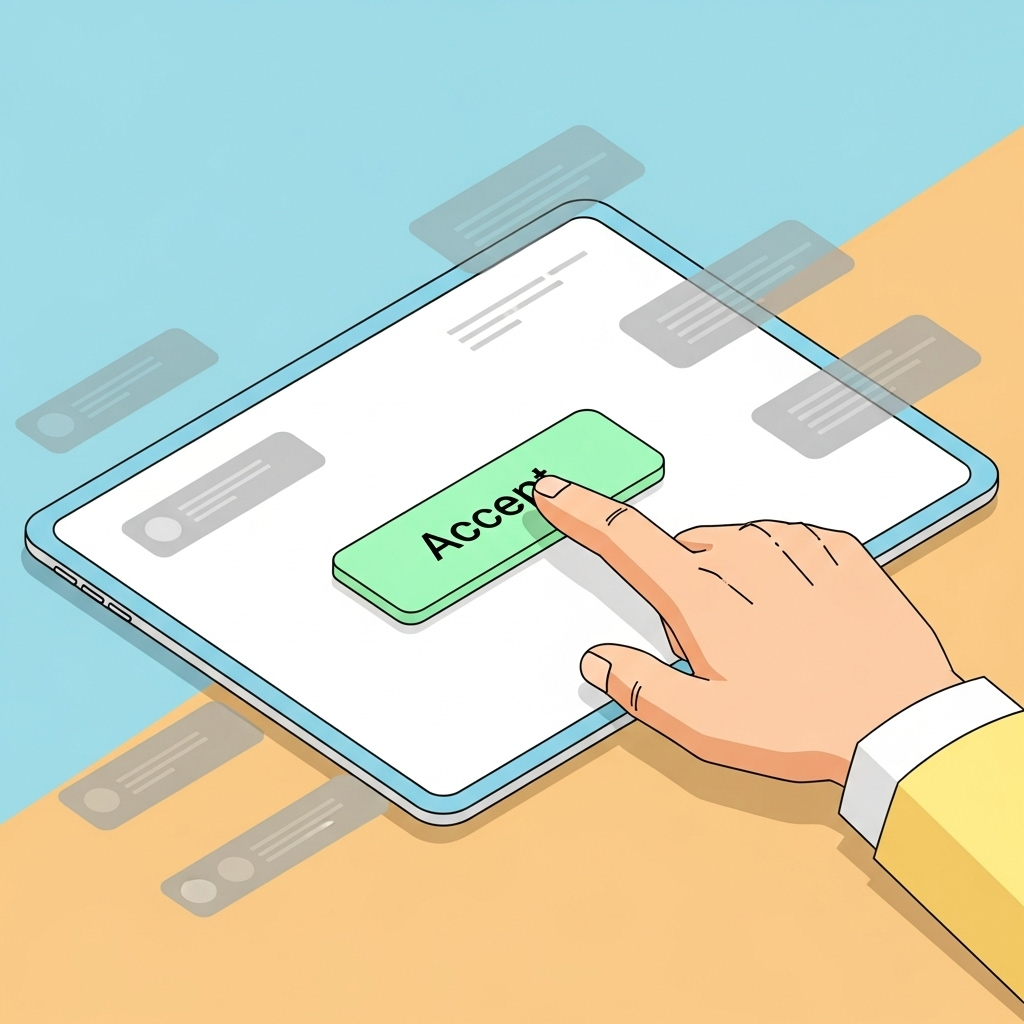
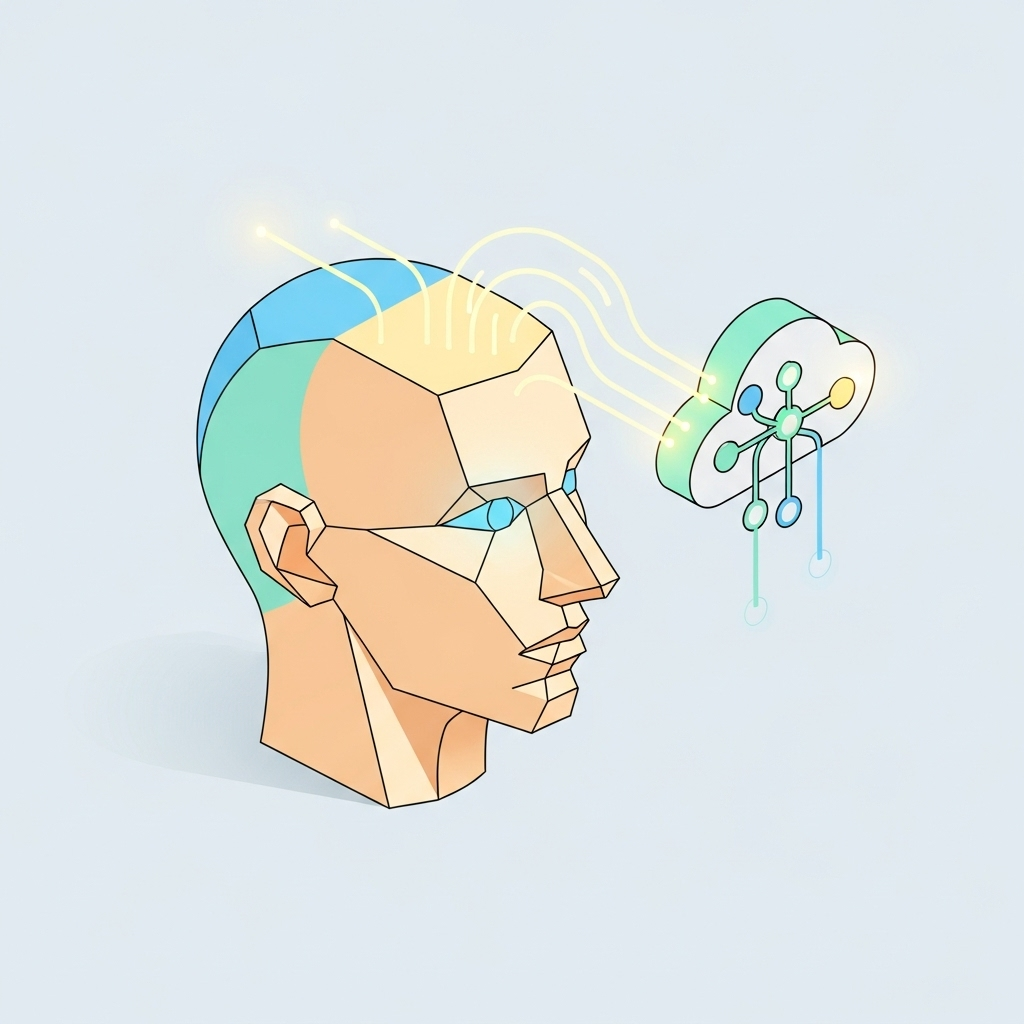
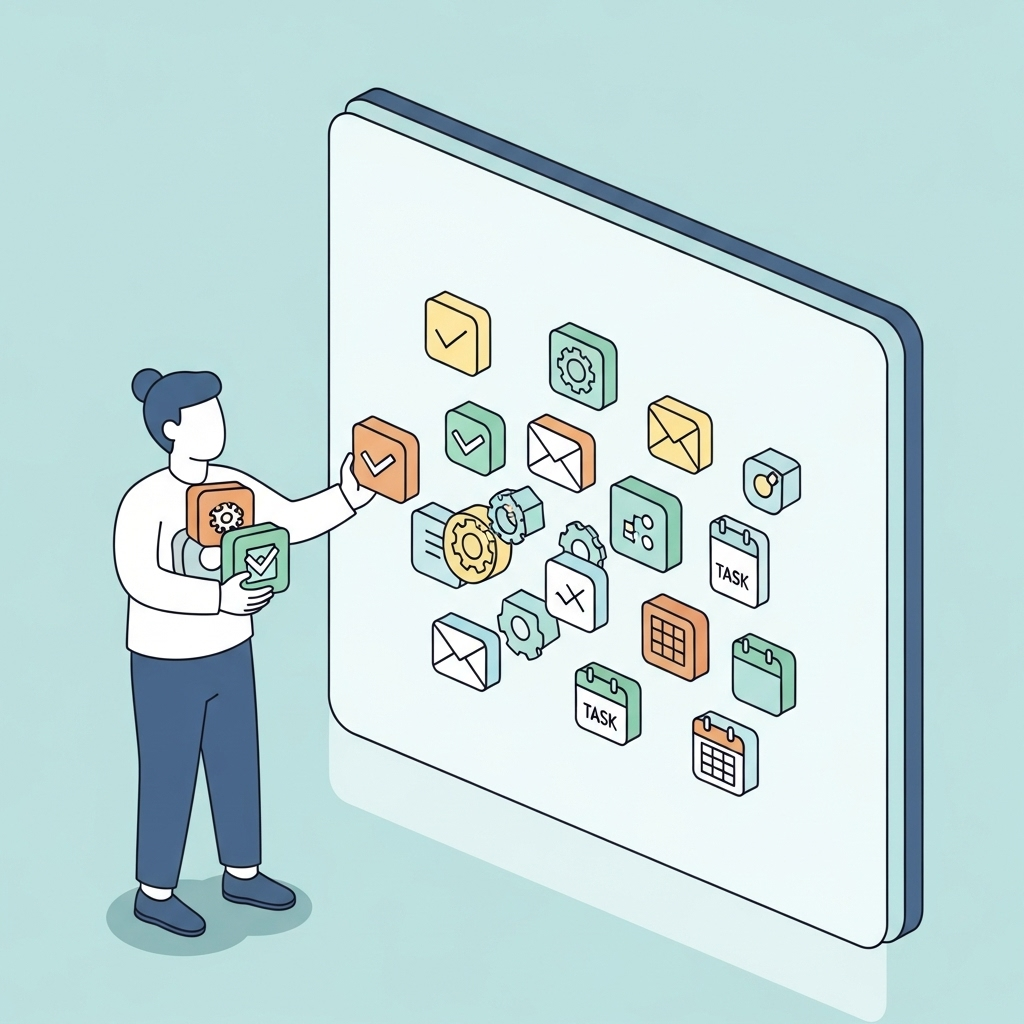
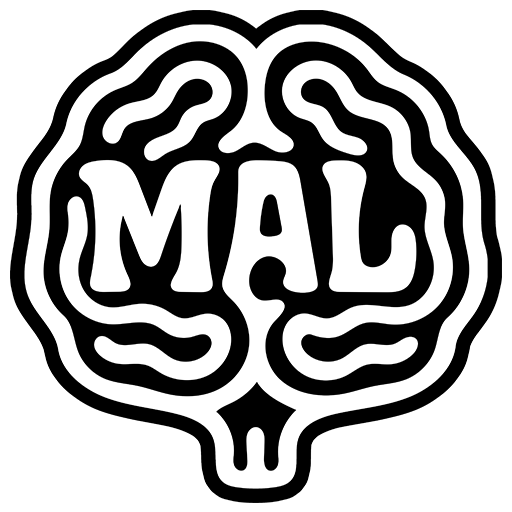
Comments ()